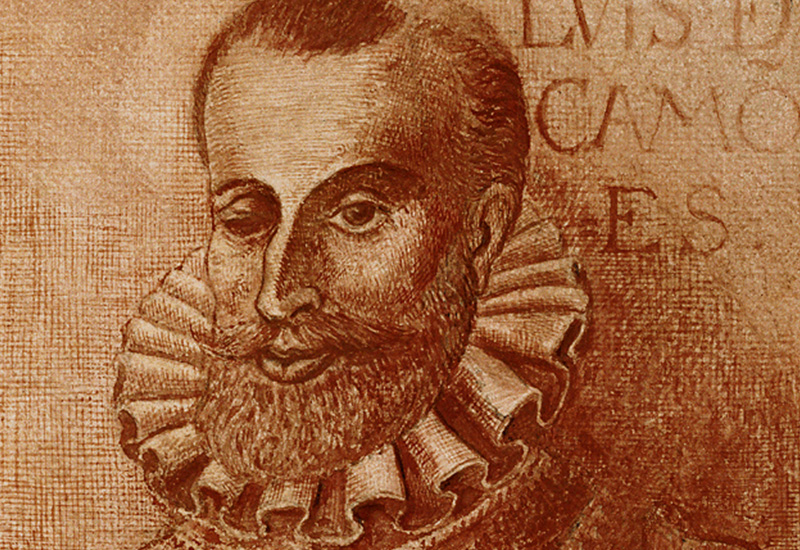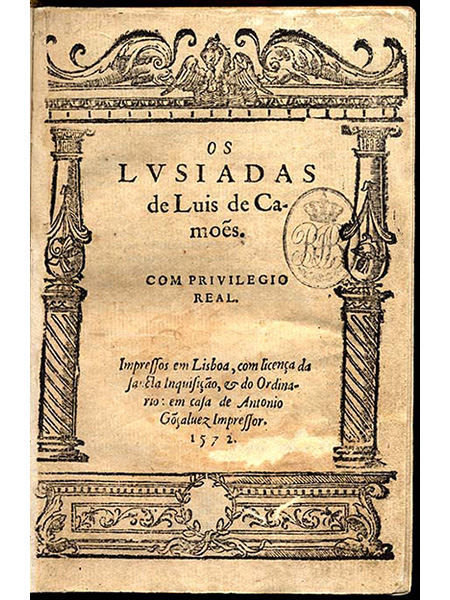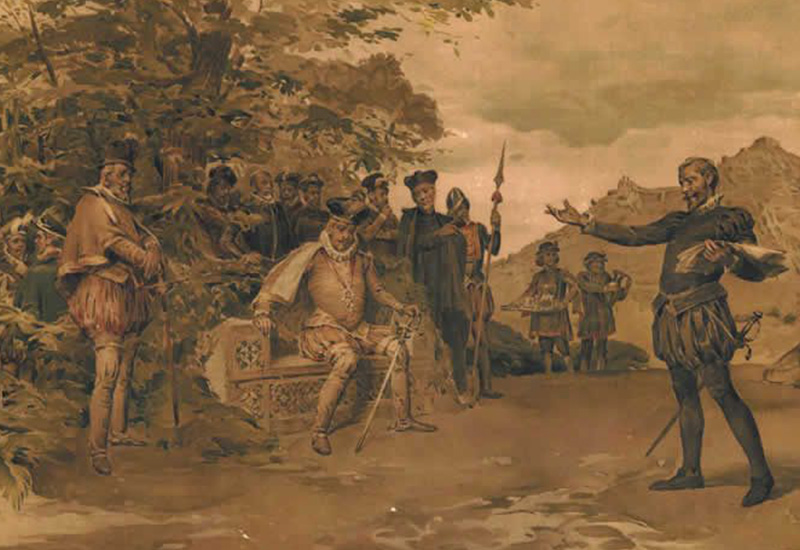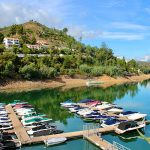The public holiday on 10 June is usually referred to simply as Portugal Day. It is celebrated here and throughout the Portuguese diaspora. It is a day to wave the flag and to show pride in the country and its history. And it all dates back to an epic poem, published in 1572.
By the sixteenth century, Portugal had established its reputation as the home of global exploration through the ‘age of discovery’, when ships from Portugal found new lands and new sources of wealth, which became the foundation of the country’s empire.
One man – Luís Vaz de Camões – began telling Portugal’s story in 1556 in an epic poem, not finished until 1571. Not much is known about Camões’ life, even though he is regarded as the country’s greatest-ever writer. He seems to have had a turbulent youth involving street fights, which led to the loss of one eye, and eventually a pardon from the King which obliged him to serve in India. We know he survived a shipwreck. Aside from that, all that survives him is this remarkable work of 8,800 verses, often compared to the great epic poems of antiquity.

The work, Os Lusíadas, is central to the 10 June celebrations, formally known as the ‘Day of Portugal, Camões and the Portuguese Community’. The title refers to the ‘sons of Portugal’ and comes from the same root as lusophone, meaning the people who speak Portuguese. Camões dedicated his great work to the young King Sebastian, whose reign ended in 1578 when he was killed in battle aged 24.
Os Lusíadas tells the story of Portugal’s years of conquest and exploration. It opens with the gods debating Portugal’s thrust for exploration and whether it is justified or not. Written from an unashamedly Portuguese perspective, it goes on to tell of the resistance met from hostile natives to those explorers landing on their shores. Then, Vasco da Gama himself takes over as the narrator and recounts the full history of Portugal through a glorious interpretation. The poem then moves on to recount the discovery of India and its bounty after the triumphant passage around the southern cape. It then covers Vasco’s triumphant return to his homeland and the adulation that greeted him.
As with any epic poem of this tradition, there are heroes and villains. The work’s greatest villain is Adomaster, who Camões presents as the giant ghost of the Cape of Good Hope (as it is now known). Vasco da Gama takes him on and challenges the giant to explain himself. He gives the famous reply:
I am that vast secret promontory
You Portuguese call the Cape of Storms
Here Africa ends. Here its coast
Concludes in this, my vast inviolate
Plateau, extending southwards towards the Pole
And, by your daring, struck to my very soul
At one level, Os Lusíadas is just a long, colourful, one-sided narrative of an era with central importance in the country’s history. But it has deeper themes as well, and many see in it a recognition of power shifting in Portugal from its nobility towards those with adventure, finding and amassing new wealth – and economic and ultimately a political revolution. That theme attracted an English scholar and diplomat, Henry Fanshawe, to make the first translation of the work into English, published in 1655. Fanshawe was close to the royal family and was the envoy sent to Portugal to oversee the marriage of Charles II and Catherine of Braganza. Fanshawe thought the moral of the poem to be highly relevant to an England then going through a civil war.

The poem both contains, and has been subjected to, politics. Under his dictatorship, Salazar first restyled the public holiday as being in honour of the Portuguese race and later associated it with the Armed Forces. All of that veneer was stripped away after the 1974 revolution, when the day was once again returned to Camões and his great work.
Salazar should have taken Camões’ advice. At the end of the work, the poet advises those in power as to how they should conduct themselves. He tells them to take advice, govern justly, only reward those who deserve it, fight bravely and honour Portugal.
Political storms, like those swelling around the Cape, rise and fall. Like Vasco da Gama’s ships, great literature can withstand it all.
Happy Portugal Day!
James Plaskitt was an MP in Tony Blair’s government in the UK and is now retired in the Algarve.
Main image: Camões reading the Lusíadas to D. Sebastião © António Ramalho, Public domain, via Wikimedia Commons













